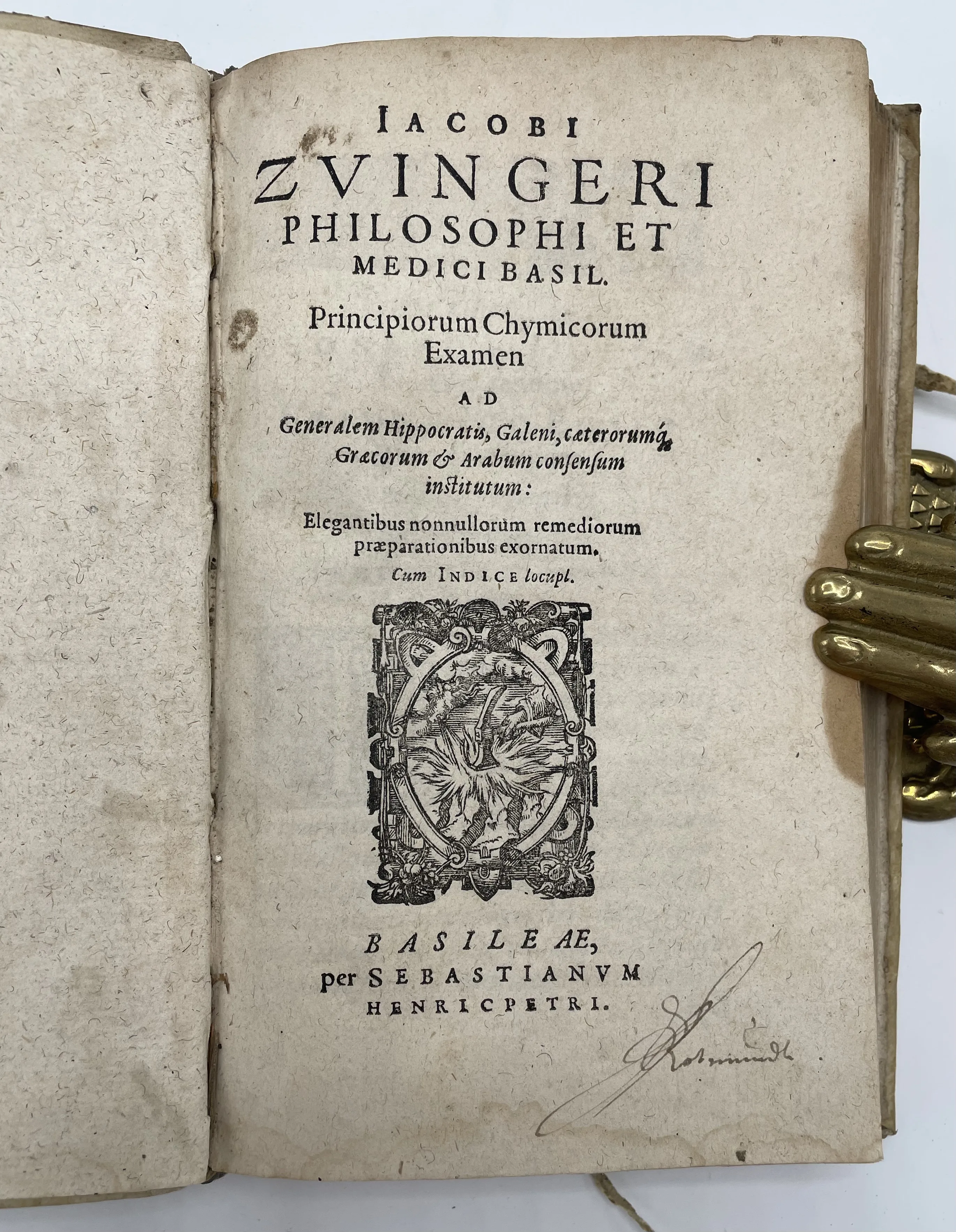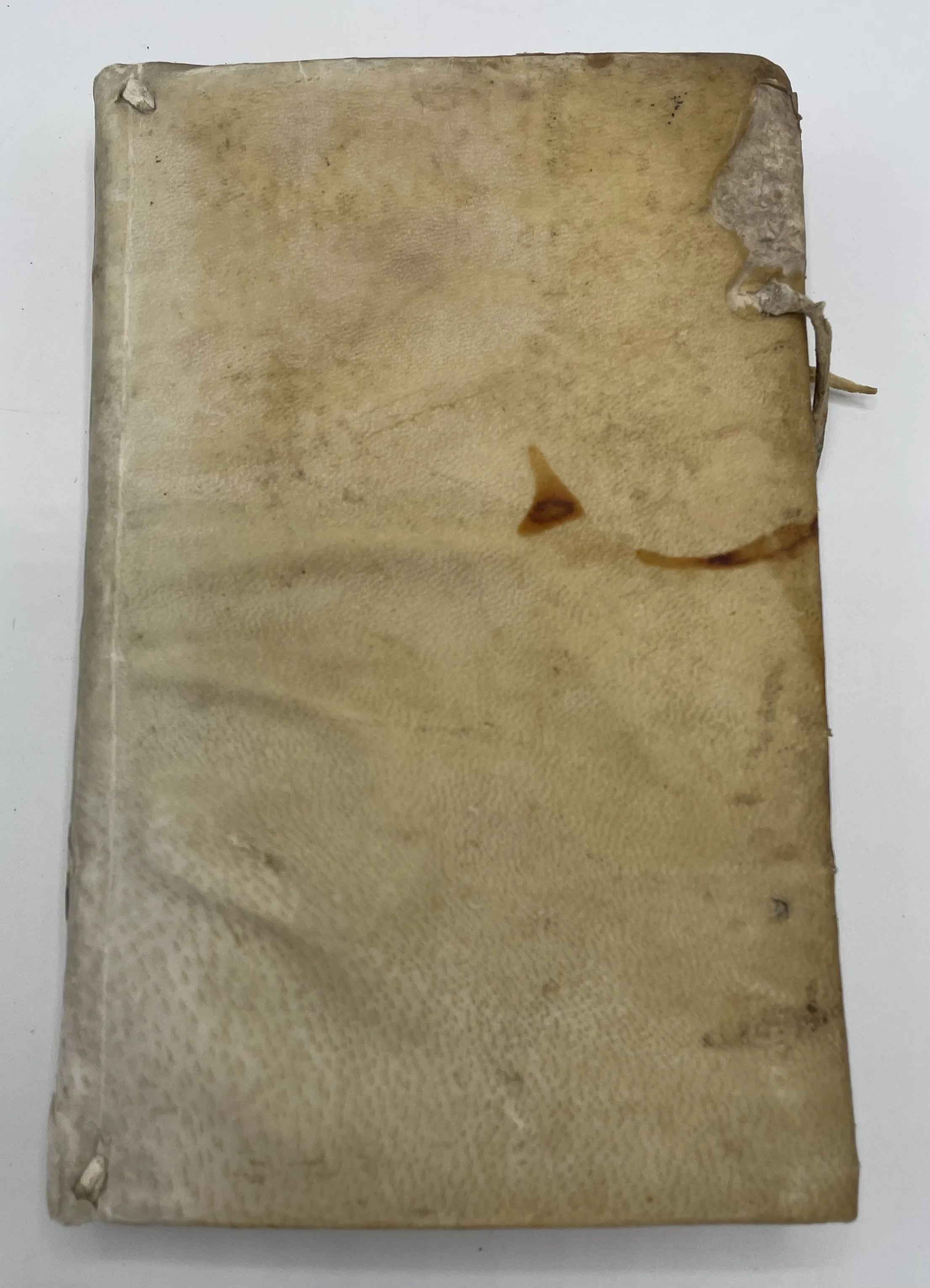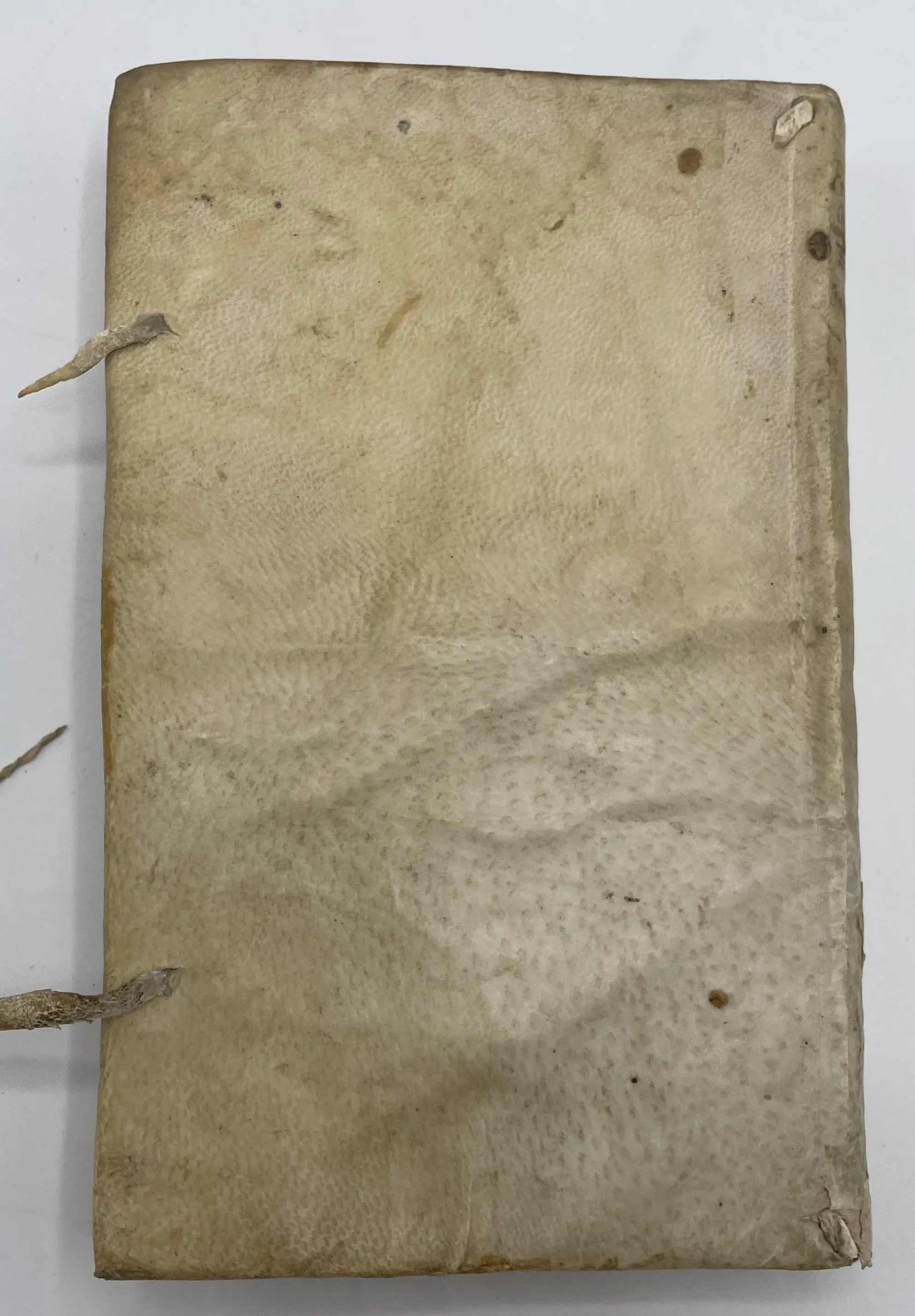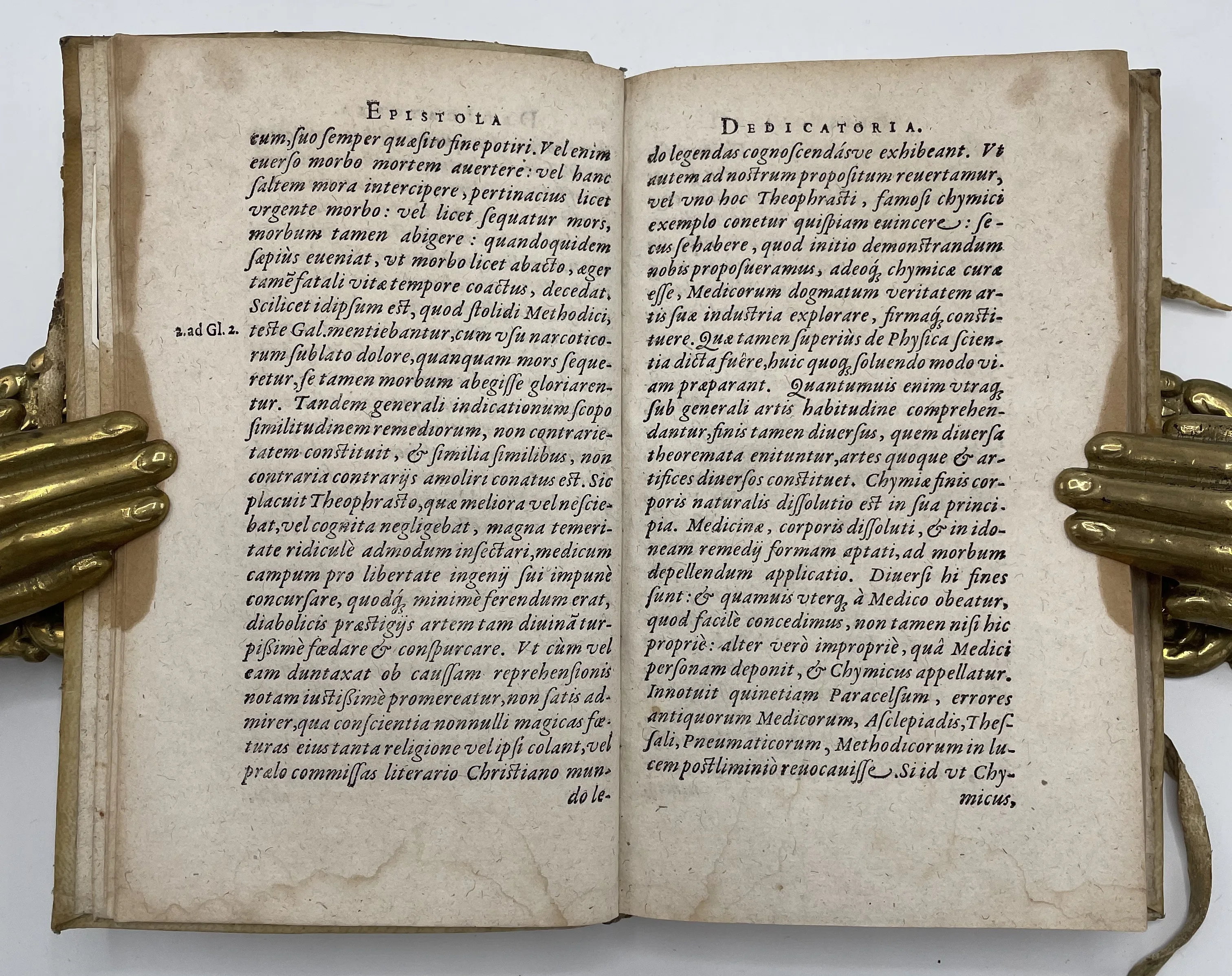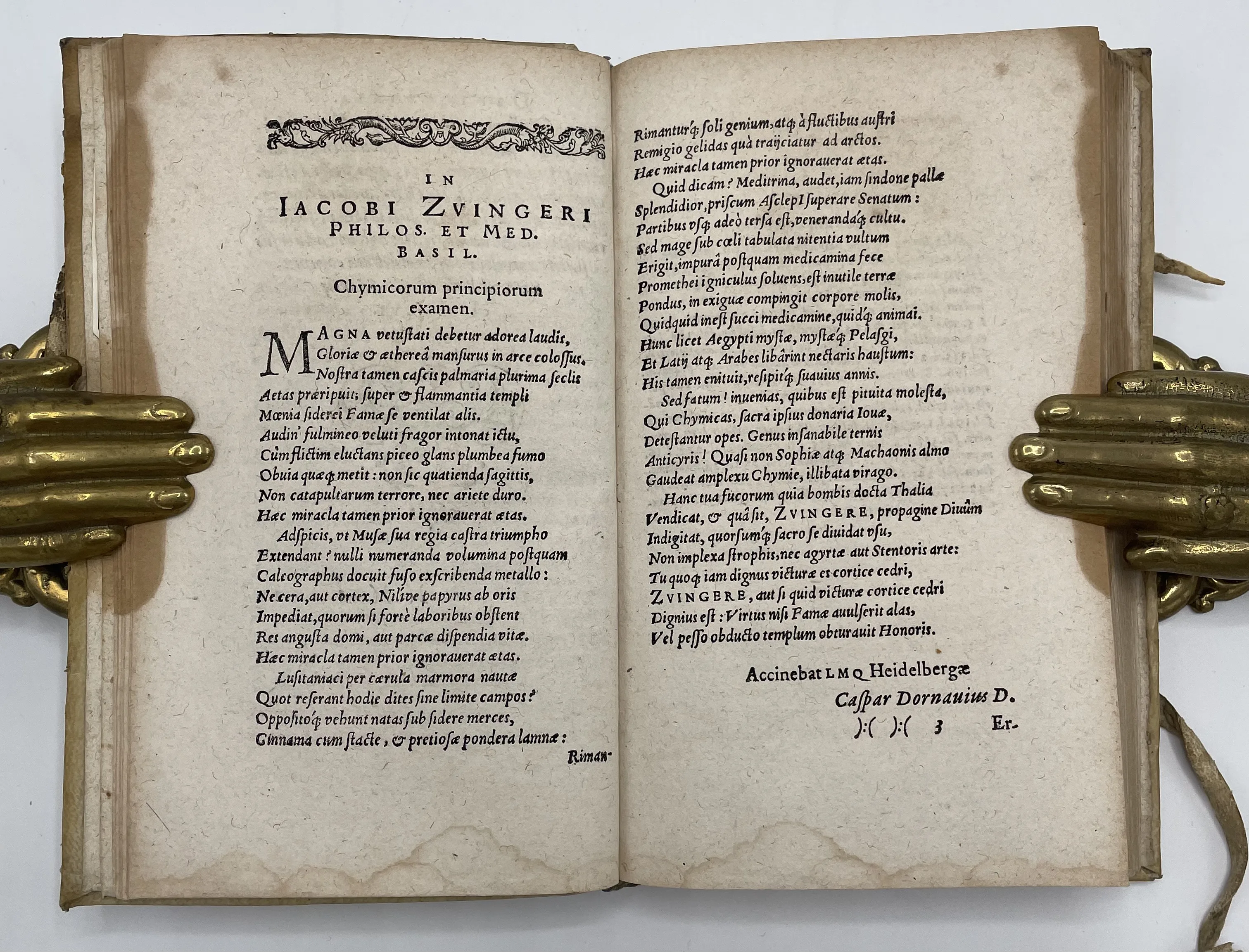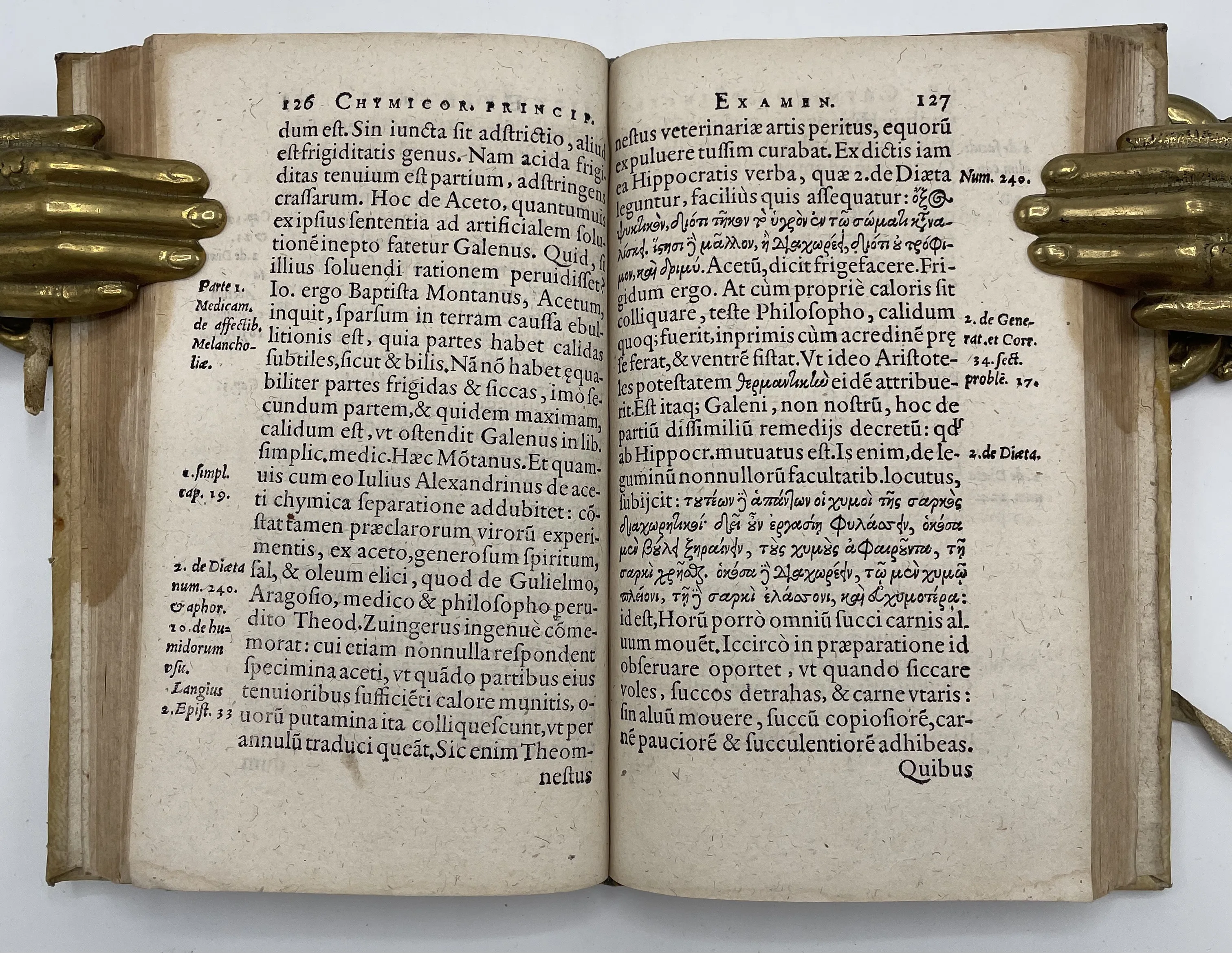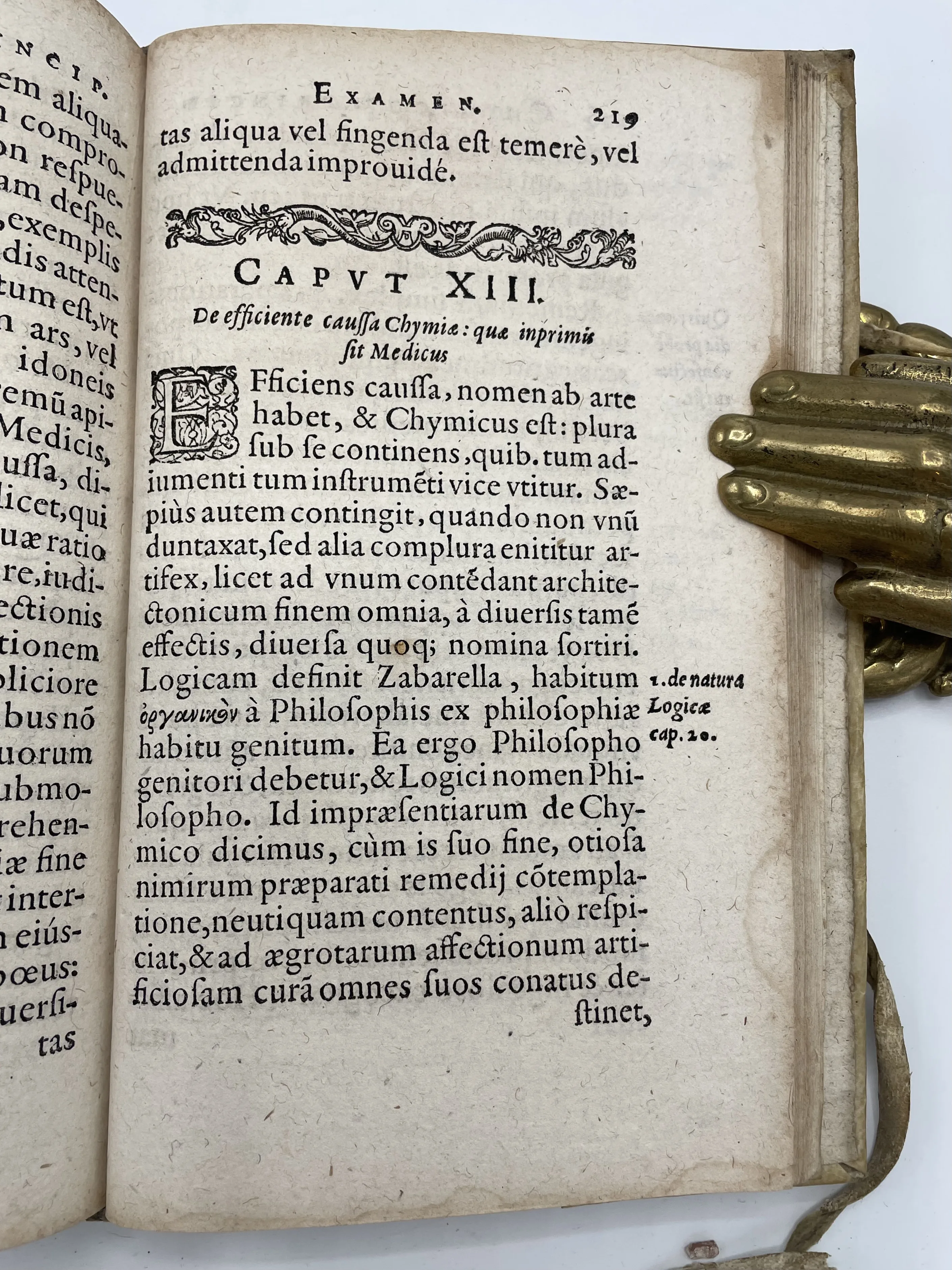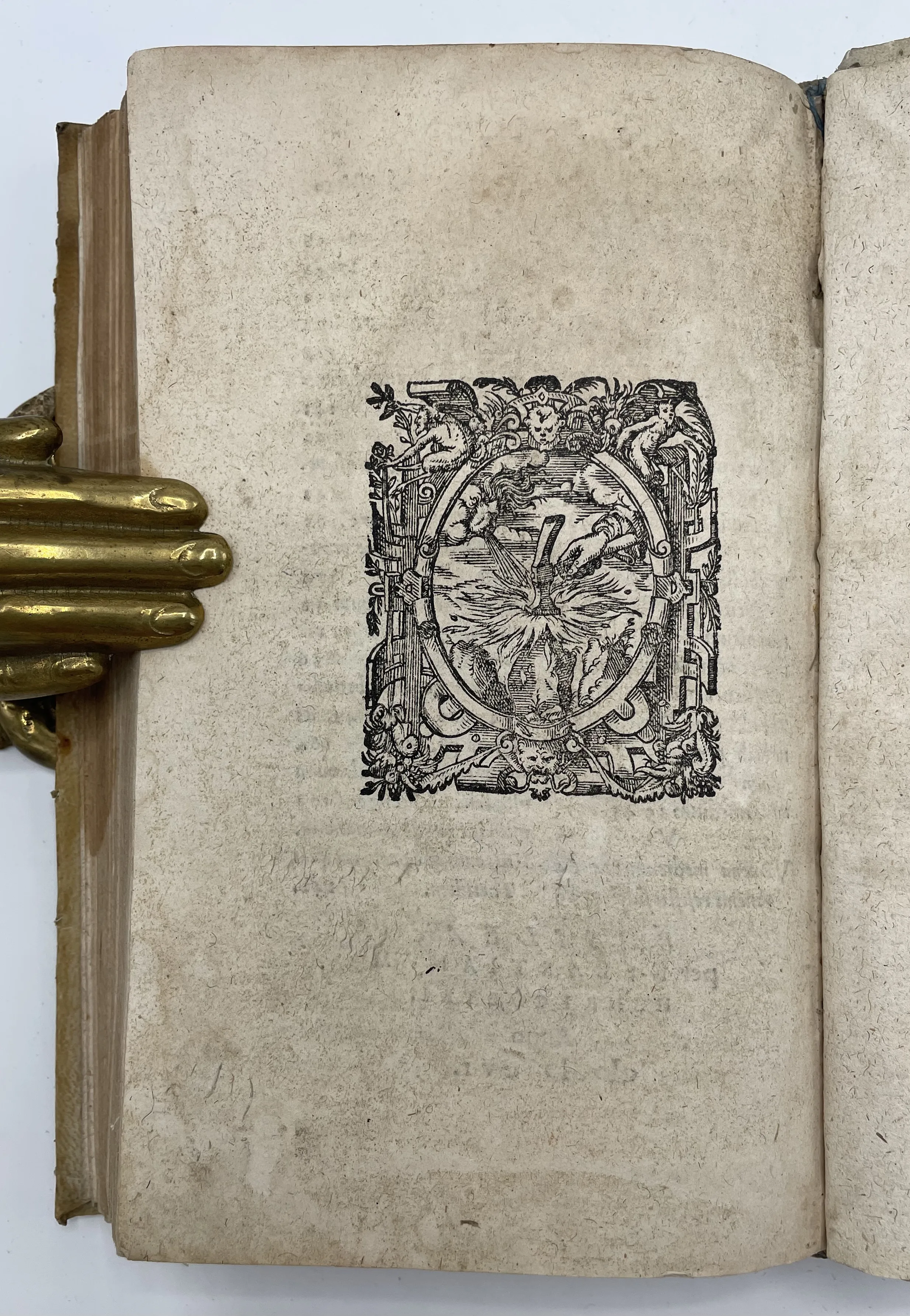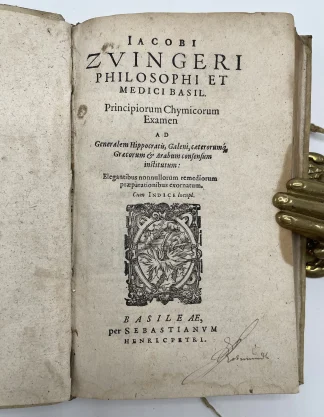ZWINGER, Jacob
Principorum Chymicorum Examen.
Basel, Sebastian Henricpetri, 1606£3,500.00
FIRST EDITION. 8vo. [22] 259 [13]. Roman letter, little Greek. Printer’s device to t-p and verso of final leaf, ms. signature to lower outer corner of t-p. Printed marginalia, woodcut initials and ornaments throughout, C19 armorial bookplate to front pastedown. Light age yellowing, narrow oil stain to foredge, not affecting text. In contemporary vellum, slight damage to outer corner of upper cover and lower spine, remains of ties.
First edition of a fascinating work of chemical medicine which remains surprisingly distant from the teachings of Paracelsus. Zwinger (1569-1610) ‘emphasises the benefits of chemistry for medicine and he shows himself to be a reserved supporter of Paracelsus’ (HLS). The son of renowned doctor and medical professor Theodor Zwinger (1533-1588), he studied medicine at the university of Padua, where he was later named consiliarius of the German nation. He worked as professor of Greek at the University of Basel from 1595, explaining his copious references to Greek literature, notably Homer.
The text considers the physical properties of natural substances such as sulphur, antimony, quicksilver and blue vitriol, as well as the uses and dangers of specific metals. The benefits of absinth, copper scales, amethyst, and aloe, are listed, amongst very many other natural resources. They are also considered as outright medical cures: antimony is thought to help with epilepsy, while arsenic is suggested to help a cough and sulphuric oil clears eases the symptoms of asthma. Throughout the work, Zwinger makes reference to the famous scientific names of antiquity, including Hippocrates, Galen, and Aristotle, whom he quotes and discusses at length. He also makes more contemporary references to his father’s work and to physician Baptista Montanus (1498-1551).
USTC: 2105543; BL Cat. (German): Z380; not in Welcome, Duveen, Garrison and Morton, Ferguson or NLM. 4 copies recorded in US.In stock


